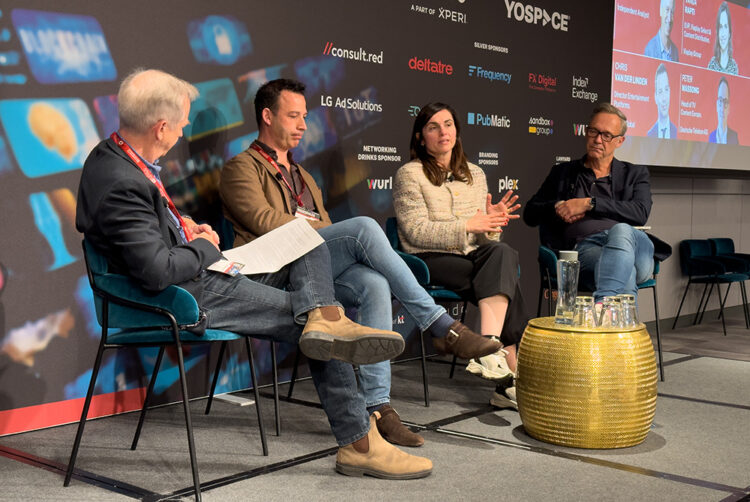‘Not just about discounts’: Pay-TV operators debate future of bundling, streaming and data


What value do pay-TV operators provide in a world where consumers have more direct access to content from streaming platforms than ever before?
That key question formed the basis of a lively discussion between three of Europe’s biggest pay-TV operators at Connected TV World Summit 2024: Virgin Media owner Liberty Global, Deutsche Telekom and Viaplay.
Speaking on stage with independent analyst Ben Keen, Liberty Global’s director of entertainment platforms, Chris van der Linden, stressed that pay-TV operators remain in a unique position to offer domestic broadcaster content with global over-the-top content.
While bundling is in the company’s “DNA”, van der Linden highlighted that operators must now create “value” in that relationship.
“You don’t want to treat the other partner as shelf space,” he said. “You really want to make sure that you grow that space together, [have] skin in the game… [use] sales power and providing those really valuable propositions that customers want to buy.”
Pushed by Keen on what that value looks like, van der Linden expanded on free ad-supporting streaming TV (FAST) as an opportunity to provide customers with what they really want as consumers face an “overwhelming” amount of channel choices.
“Look at Samsung TV Plus: it’s hundreds of channels and so, as a customer, you get overwhelmed with it,” van der Linden said.
“So that role of aggregating, curating, selecting, editorialising… [we] take a step back [and say]: ‘OK, what would be the right content for this customer and sticking it into the [user experience] in a way that’s familiar?’ That’s where FAST is really making sense.”
In response to an audience question, all three panellists said they had no plans to provide ad-supported versions of subscriber VOD apps in any of their bundles.
Pay-TV providers across the world have inked deals with Netflix and Disney in different markets to provide discounted subscriptions to their ad-free versions as part of a “soft” bundle (where the services are offered as an add-on to a “hard” bundle of channels).
This looks unlikely to change, according to Deutsche Telekom’s head of TV content, Europe, Peter Wassong, who questioned how committed global streaming companies are to growing ad revenues for their ad-supported versions.
“I’m always wondering what’s the objective [of streamers’ ad-funded tiers],” Wassong said. “Is it really ad revenues or is it just an upselling vehicle? Because we see a certain pattern here: a streaming service introduces an ad-supported tier that is maybe €1 less, but at the same time the so-called premium tier becomes €3 more. I think it’s just about the upsell and the price increase, rather than the ad revenue.”
Global streaming companies were, of course, not on stage to defend themselves. The Media Leader‘s coverage of Netflix and Disney’s respective advertising chiefs, who spoke at The Future of TV Advertising Global in December 2023, certainly gave the impression that cheaper ad-supported subscription offers are a key part of their strategy as cost-conscious consumers cut back on non-essential goods and services.
For Viaplay’s executive vice-president, Select and content distribution, Vanda Rapti, access to data has become a key part in deals between operators and content platforms, but warned that “getting data” out can be “cumbersome” and warned against placing undue burden on the business.
She explained: “The model we have is focusing and adapting on the needs that the different countries have because, bear in mind, we have some telcos as partners, but then we also have some local streamers. In two cases, we have decided to partner up with the local public broadcaster.
“I’m sure that we’ll be getting more into data — hopefully in some automated system.”
